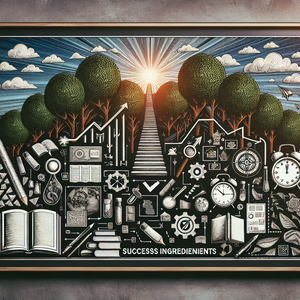The Future of Urban Living in Project 2025

The rapid urbanization of the past few decades has led to significant challenges for city dwellers: overcrowding, pollution, inadequate public services, and a lack of green spaces. As we approach 2025, Project 2025 aims to address these issues through innovative solutions that prioritize sustainability and quality of life. By integrating cutting-edge technology with eco-friendly practices, the urban landscape is set to evolve into a more welcoming and efficient space.
Smart Technology: The Backbone of Urban Living
At the heart of Project 2025 is the integration of smart technology into urban infrastructure. The concept of smart cities encompasses a multitude of innovations aimed at enhancing the quality of life for residents. For instance, smart traffic systems can reduce congestion by optimizing traffic flow, while smart waste management systems can streamline garbage collection and recycling processes.
Sustainable Architecture: Building for Tomorrow
Sustainable architecture is another key pillar of Project 2025. The vision includes buildings that are not only aesthetically pleasing but also environmentally responsible. This means using materials that are renewable, energy-efficient, and capable of minimizing the urban heat island effect.
Green Spaces: Revitalizing Urban Areas
In addition to technology and architecture, the inclusion of green spaces is crucial for the livability of future cities. Project 2025 envisions urban areas filled with parks, community gardens, and natural landscapes that promote mental well-being and social interaction.
Supporting Examples: Global Inspirations
Cities around the world are already implementing aspects of Project 2025, providing valuable case studies for future developments. For instance, Amsterdam's extensive cycling infrastructure promotes sustainable transportation, with about 60% of its residents regularly using bicycles for daily commutes.
As we look towards 2025, the vision set forth by Project 2025 presents an exciting opportunity to redefine urban living. By harnessing smart technology, embracing sustainable architecture, and creating vibrant green spaces, cities can become not only more livable but also more resilient in the face of future challenges.
Urban Planner - Smart City Specialist
City planning departments, technology firms specializing in urban solutions, consultancy agencies
Core Responsibilities
Design and implement smart city initiatives that enhance urban living through technology integration.
Analyze data from smart sensors to inform planning decisions and improve city infrastructure.
Collaborate with city officials, technologists, and community stakeholders to develop actionable urban policies.
Required Skills
Proficiency in urban planning software (e.g., GIS) and data analysis tools.
Strong understanding of smart technologies and their applications in urban settings.
Excellent communication skills to present findings and recommendations effectively.
Sustainable Architect
Architectural firms, construction companies focusing on green buildings, municipal government projects
Core Responsibilities
Design eco-friendly buildings that utilize renewable materials and energy-efficient systems.
Conduct environmental impact assessments and contribute to urban sustainability goals.
Collaborate with engineers and contractors to ensure sustainable practices are implemented during construction.
Required Skills
Expertise in sustainable design principles and building certification standards (e.g., LEED).
Strong knowledge of architectural software (e.g., AutoCAD, Revit) and 3D modeling.
Creative problem-solving skills to integrate nature into urban architecture, such as green roofs and vertical gardens.
Environmental Consultant
Environmental consulting firms, government agencies, non-profit organizations focused on urban sustainability
Core Responsibilities
Assess environmental impacts of urban development projects and provide recommendations for mitigation.
Conduct field studies and research to support sustainable urban initiatives.
Prepare reports and presentations for stakeholders, including government agencies and community groups.
Required Skills
Strong background in environmental science, policy, or engineering.
Ability to analyze complex data and articulate findings clearly to non-specialists.
Familiarity with environmental regulations and sustainable practices in urban development.
Community Engagement Coordinator
Non-profit organizations, city councils, community development agencies
Core Responsibilities
Facilitate communication between residents, urban planners, and local government to ensure community input in urban projects.
Organize workshops, forums, and outreach programs to educate the public about sustainable urban practices.
Develop strategies to promote community involvement in green space initiatives and urban gardening projects.
Required Skills
Strong interpersonal and communication skills to engage diverse community members.
Experience in project management and event coordination.
Understanding of urban issues and a passion for sustainable development and community building.
Urban Data Analyst
Government agencies, urban research institutes, private data analytics firms
Core Responsibilities
Analyze urban data sets to identify trends related to transportation, housing, and public services.
Work with city planners to provide data-driven insights that inform urban development and policy decisions.
Develop dashboards and visualizations to communicate findings to stakeholders effectively.
Required Skills
Proficiency in data analysis tools (e.g., Python, R, SQL) and visualization software (e.g., Tableau).
Strong analytical skills with an ability to interpret complex data and provide actionable insights.
Familiarity with urban planning concepts and the smart city framework.


